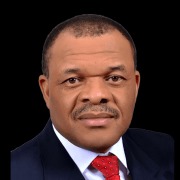What Turmoil in Ecowas Means for Nigeria and Regional Stability (9-9)

Nnamdi Obasi
Senior Adviser, Nigeria
Secondly, Nigeria and the ECOWAS Commission should initiate a process for addressing the grievances that were laid out by the breakaway countries, as highlighted earlier. At a minimum, it should commit to reviewing the organisation’s programs and activities comprehensively, so as to reassure member states that they are properly aligned (or realigned) with the bloc’s fundamental mandate to strengthen economics, boost infrastructure and support livelihoods. It should also commit to stepping up assistance to the central Sahelian states in fighting jihadist insurgencies and terrorism, including by showing a new sense of urgency in mobilising the regional bloc’s long-proposed counter-terrorism force.
Thirdly, ECOWAS member states need to demonstrate better understanding of popular sentiment in the region’s Francophone countries, particularly citizens’ widespread displeasure with the post-colonial relationships with France, which they increasingly view as exploitative and unacceptable. ECOWAS should publicly acknowledge the need for fairer and more equitable economic relations between its Francophone members and Paris, looking for opportunities to make clear that the bloc charts its own course. Member states should work to dispel the widespread notion that ECOWAS is guided by France and other Western powers, a view that is gaining followers, even in Anglophone member countries.
Fourthly, while ECOWAS leaders are rightly concerned that coups are endangering democracy in West Africa, they should rethink their approach to helping regional states resist military takeovers. While they should retain the sanctions against abrupt termination of democracy, as provided for in Article 45 of the bloc’s governance protocols, other tools are also needed. In particular, they need to lay greater emphasis on preventing and, where appropriate, sanctioning constitutional and, electoral transgressions, as well as serious human rights abuses that often create fertile ground for coups, rather than relying so heavily on post-coup punitive measures.
Finally, talks about reconciliation will succeed only if both sides make concessions, and the three breakaway states very much have a role to play. For the sake of regional comity and security (including their own), and out of respect for their own citizens’ civil and political rights, they should take seriously the olive branches that ECOWAS extends, look for ways to repair neighbourly relations and return to constitutional rule by the earliest dates practicable. To clear hurdles ahead of the more substantial negotiations necessary for possible reconciliation, the military rulers in Niger should release the ousted president, Bazoum, from detention unconditionally. To facilitate this release, they should meet with the three countries that ECOWAS has entrusted to negotiate for Bazoum’s release – Benin, Togo and Sierra Leone –and agree with them on allowing him to go into exile to any country within the bloc, until constitutional rule is restored in Niamey.
While there is every reason to try to heal ECOWAS’s rift with the three departed states, success is likely to remain elusive. Most diplomats and analysts in Abuja seem convinced that the estranged nations have already gone too far and that, at present, their return to the bloc looks very unlikely.
If ECOWAS is ultimately unable to persuade them to come back, then it will be important to consider alternatives that serve some of the same objectives.



